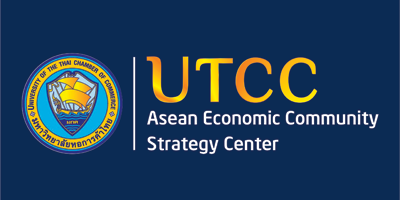Thailand: Foreign investors eye Thailand as stability improves
It’s hard to define a country’s economic prospects in a single word. However, in the case of Thailand, it really has boiled down to that. Over the past few years the word most often associated with the country has been “uncertainty”, not least because of the change in the government and the illness and passing of the late King Bhumibol Adulyadej.
However, over the past few months “stability” has become the word of choice to describe the country. The current government has set a new economic agenda with a clear commitment to attracting foreign direct investment (FDI). At the same time, the accession of His Majesty King Maha Vajiralongkorn to the throne has been a smooth one.
The combination of these factors has resulted in foreign investors becoming more optimistic about Thailand. The country has jumped two places to number 19 on AT Kearney’s 2017 Foreign Direct Investment Confidence Index (FDICI). It is now the second most attractive investment destination in Asean after Singapore. Along with “stability”, Thailand is also benefiting from the following factors:
Governance and regulation: The results of this year’s FDICI show that global investors are putting a strong focus on governance and regulatory factors such as tax rates and ease of tax payments, efficiency and transparency of government regulations and government incentives when making investment decisions.
Thailand’s 12th National Economic and Social Development Plan, which aims to strengthen the economy and enhance the country’s competitiveness, has clearly emphasised its commitment towards foreign direct investment. In accordance with the plan, the Board of Investment released the amended Investment Promotion Act (No.4) which is geared towards promoting investments in 10 key high-tech industries to transform the country into “Thailand 4.0”.
Incentives include corporate income tax exemptions and reductions, exemptions of import duty on machinery, raw and essential materials for R&D purposes and non-tax incentives such as the right to own land or bring skilled workers into the country. In addition, the government has also launched a 10-billion-baht Competitiveness Fund aimed at attracting investment in 10 targeted industries.
Recovering economy: While governance and regulatory factors are important, they need to be backed by economic data. This is often gauged by the domestic market size and economic performance. As the second largest economy in Asean after Indonesia, Thailand is an attractive investment destination based of the size of its domestic market.
While Thailand’s GDP growth remained below 3% in 2013, 2014 and 2015, the economy has been showing signs of recovery. According to World Bank estimates, GDP growth for 2016 was around 3.1% and is expected to be 3.2% in 2017. Key drivers include private consumption as well as government-funded infrastructure projects. The projects will not only provide a short-term boost to the economy, but also improve the country’s overall infrastructure and help sustain growth in the long run, making it a key factor for foreign investors. Innovation capabilities: With technology having a big impact on almost every aspect of business, as well as end-consumers, investors are paying close attention to a country’s technological and innovation capabilities.
Thailand is currently in a typical middle-income trap situation. Its labour costs are too high in order to compete against countries like Vietnam for basic assembly and manufacturing. Yet, its technological capabilities are not yet on par with those of developed economies: in the 2016 Global Innovation Index, Thailand ranked 52nd.
However, the country has been taking concrete steps to address this. As part of its Thailand 4.0 transformation, the government has put human capital and innovation at the forefront of its agenda. Key measures include the development of domestic human capital through initiatives such as dual vocational education and training programmes. It is also encouraging foreign organisations to establish academic institutions in science and technology in Thailand.
Optimistic investor sentiment: The underlying factor is that investors are feeling generally optimistic. According to the FDICI, an overwhelming 75% of investors plan to increase their FDI in the coming three years — up from 71% in 2015.
This is particularly true for Asia. Over 40% of global investors are more optimistic about the regional economic outlook in Asia-Pacific this year.
Thailand is surely benefiting from that optimism. However, what will be crucial for the country in the coming years will be to deliver against the goals it has set and to follow through with its ambitious reform agenda.
This year’s FDI Confidence Index highlighted that investors are divided over Thailand. While some continue to be interested, others want to wait and watch. The one word that the undecided ones would be looking for in the coming years is “reliability”.
Source: http://www.bangkokpost.com/business/news/1241782/foreign-investors-eye-thailand-as-stability-improves


 English
English




